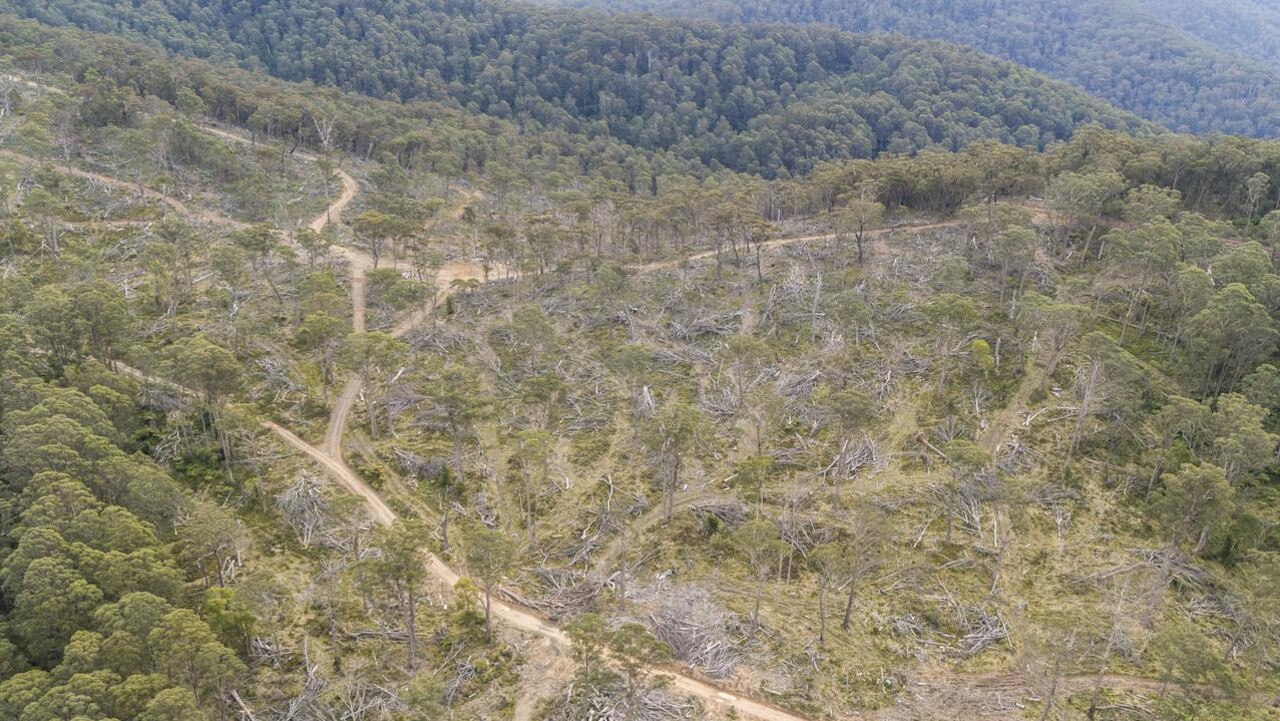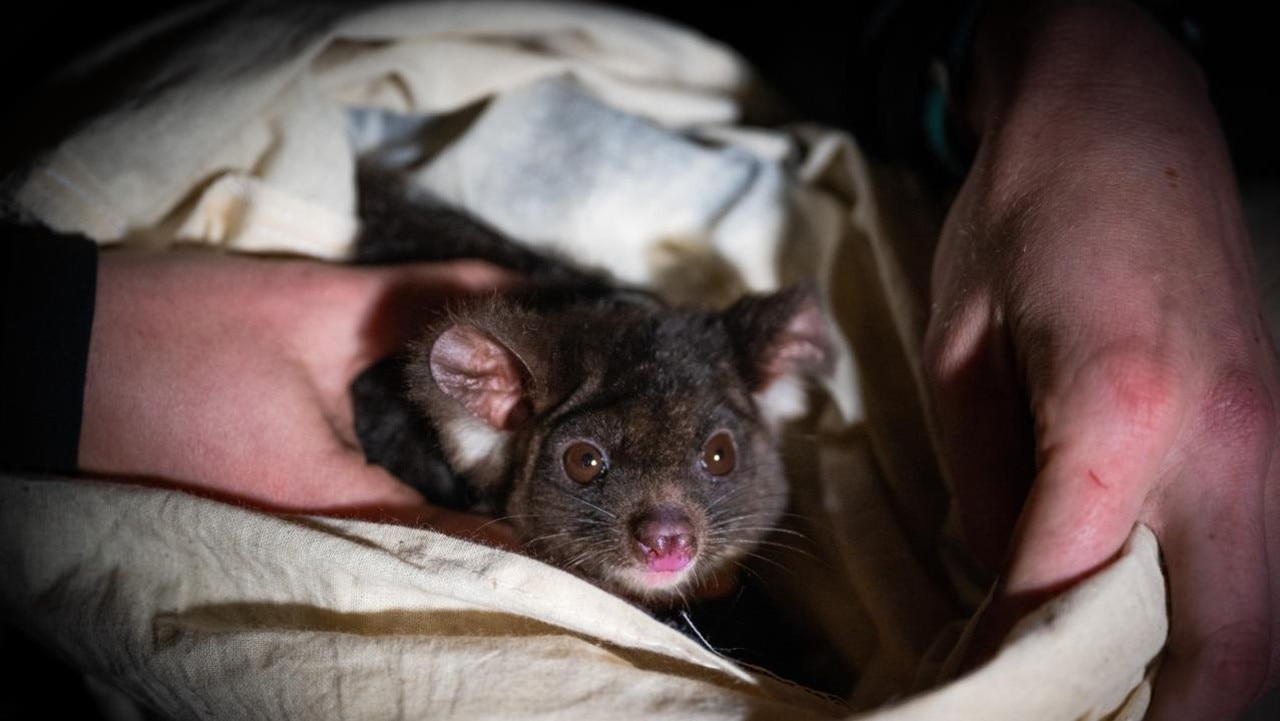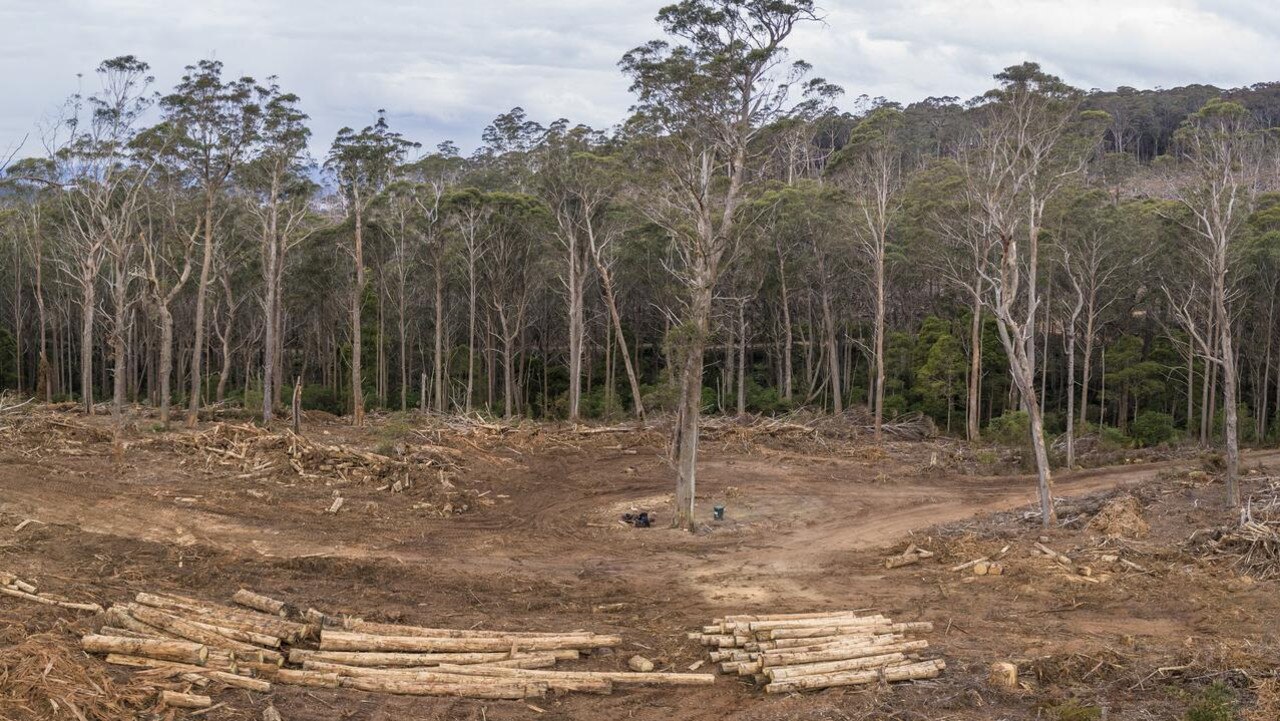Tallaganda forest logging halted after dead glider discovered
An alarming discovery by environmental investigators has brought logging in a “crucial” forest habitat to a halt.
The NSW Forestry Corporation has been ordered to halt logging operations in an important southern NSW forest after investigators discovered a dead endangered marsupial.
The corpse of the southern greater glider, an endangered species, was discovered by the NSW Environment Protection Authority following a community complaint.
The animal was found just 50m from forest harvesting operations in Tallaganda State Forest, southeast of Canberra, though the cause of death is not yet known.
EPA acting executive director operations Steve Orr said the find was particularly alarming due to the animal’s reliance on unburnt forest following the Black Summer bushfires.
“Southern greater gliders are an endangered species and shelter in multiple tree cavities, known as ‘den trees’, over large distances,” Mr Orr said in a statement on Thursday.

“Den trees are critical for the food, shelter and movement of gliders and FCNSW is required to protect them and implement 50m exclusion zones around identified den trees.
“While community reports suggest about 400 southern greater gliders may be living in the Tallaganda State Forest, FCNSW has identified only one den tree.
“We are not confident that habitat surveys have been adequately conducted to ensure all den trees are identified (...) and we will take immediate action where warranted.”
FCNSW was ordered to immediately cease all harvesting, haulage operations, and any road and track construction work in the areas of concern in Tallaganda State Forest.
The agency must immediately comply with the order, with failure to do so considered a serious offence that attracts a maximum court-imposed penalty of up to $1.65m.

FCNSW faces a further $165,000 for each day the offence continues, with the order in place for at least 40 days. Similar penalties apply in respect to a breach of the Forestry Act.
The move was welcomed by the World Wide Fund for Nature-Australia, which earlier this week urged NSW Environment Minister Penny Sharpe to halt work in the forest.
While investigations were ongoing, the environmental group praised the government’s “swift investigation” into what it said was crucial habitat for the endangered glider.
“WWF’s conservation scientists warned the government agency responsible for this destruction of the reckless impact this logging would have on greater gliders,” WWF-Australia chief conservation officer Rachel Lowry said.
“The fact that it had to come to this, an actual sighting of a deceased, endangered animal, is beyond sad, and we can only hope that this temporary ceasefire becomes permanent to help give the greater glider a fighting chance”.
Over the past 20 years, the population of greater gliders has fallen by a whopping 80 per cent, decimated by land clearing, climate change and widespread bushfires.

One of the species’ last strongholds in southern NSW sits in Tallaganda State Forest, a sprawling woodland located beside Tallaganda National Park and wedged between Canberra and Batemans Bay.
Ms Lowry said if the government was committed to zero extinction, it would need to accelerate nature law reforms and ensure that regional forestry agreements were included as part of that package.
“The NSW government has an opportunity to fast-track a commitment to transitioning to native timber harvesting. There are better solutions than what we have witnessed this week in Tallaganda,” Ms Lowry said.
In Australia, state forests can be logged outside the purview of Commonwealth laws due to regional forestry agreements struck between the federal government and state-run forestry corporations.
In a statement, FCNSW said protecting glider habitat was “crucial” and it had spent many months preparing for the operations through “intensive pre-harvest surveys” to identify and map sensitive habitat and ecological features.
“During the harvesting operation, Forestry Corporation ensures the habitat for gliders such as hollow bearing trees and retention clumps are protected,” the spokesperson said.
“Forestry Corporation is fully complying with the stop work order and its compliance team is on site investigating.
“We are committed to investigating what has occurred and finding out what the circumstances are around the glider found dead in the forest.”



